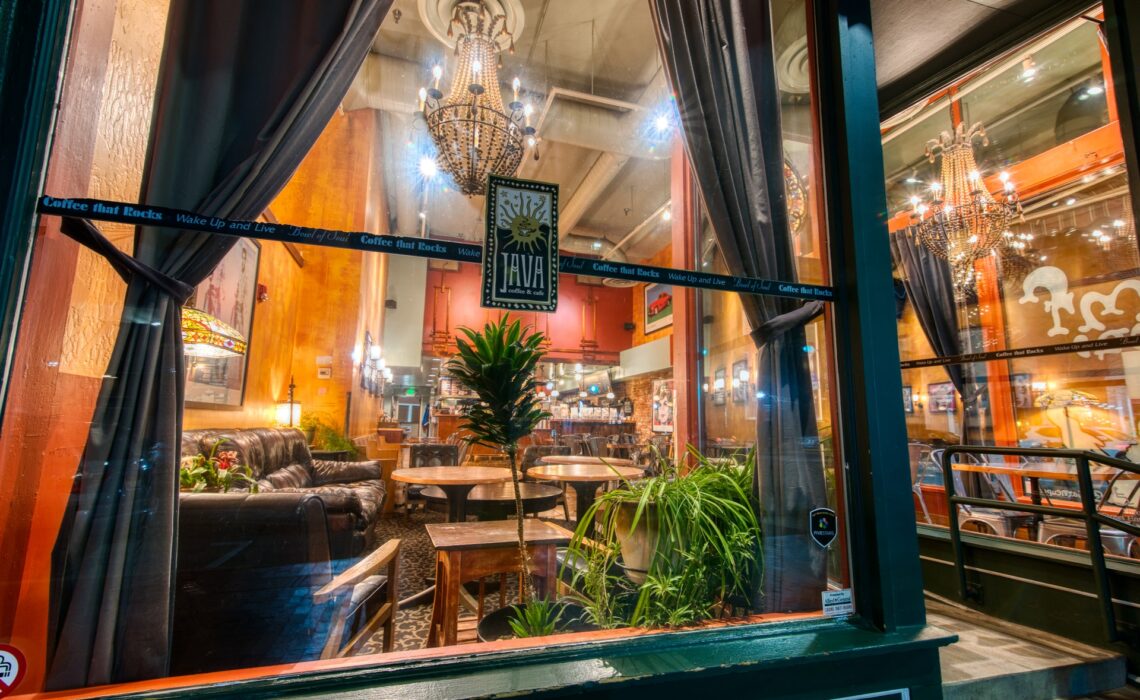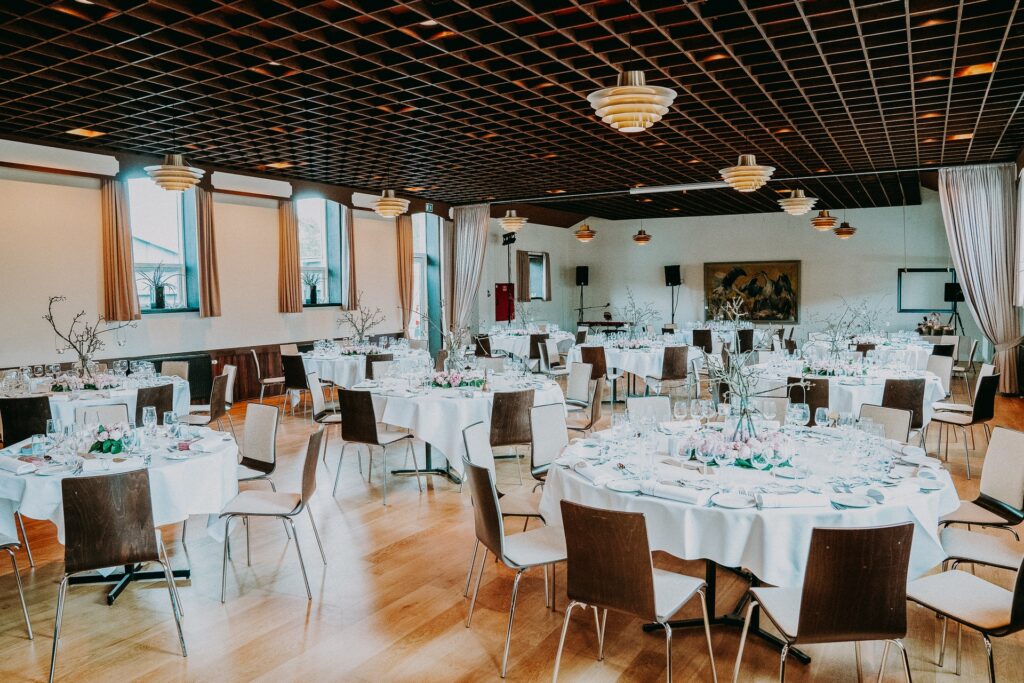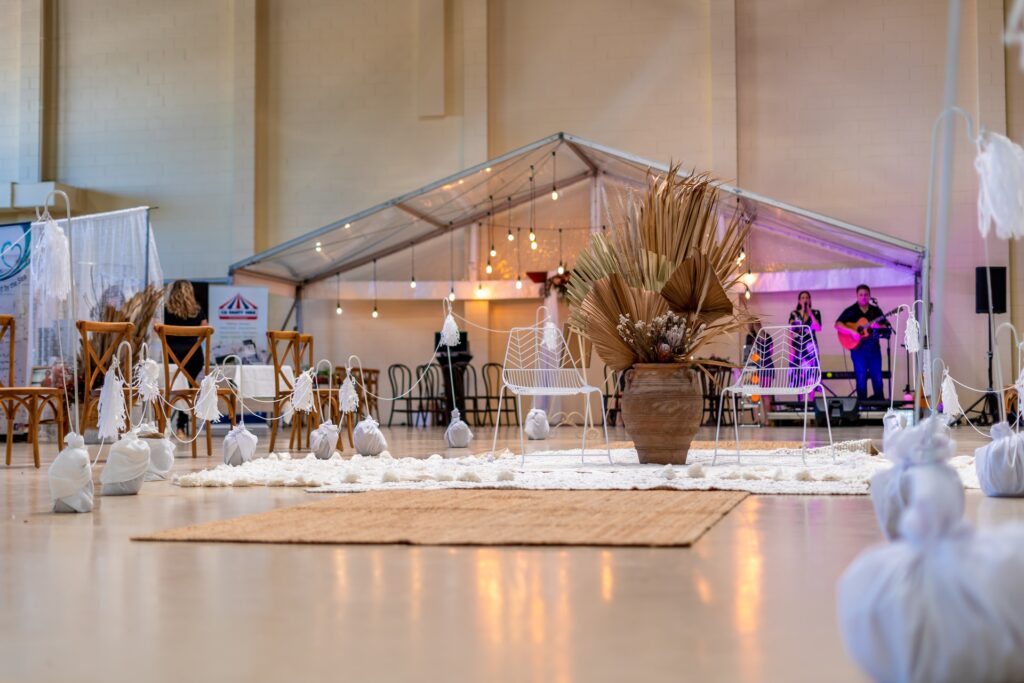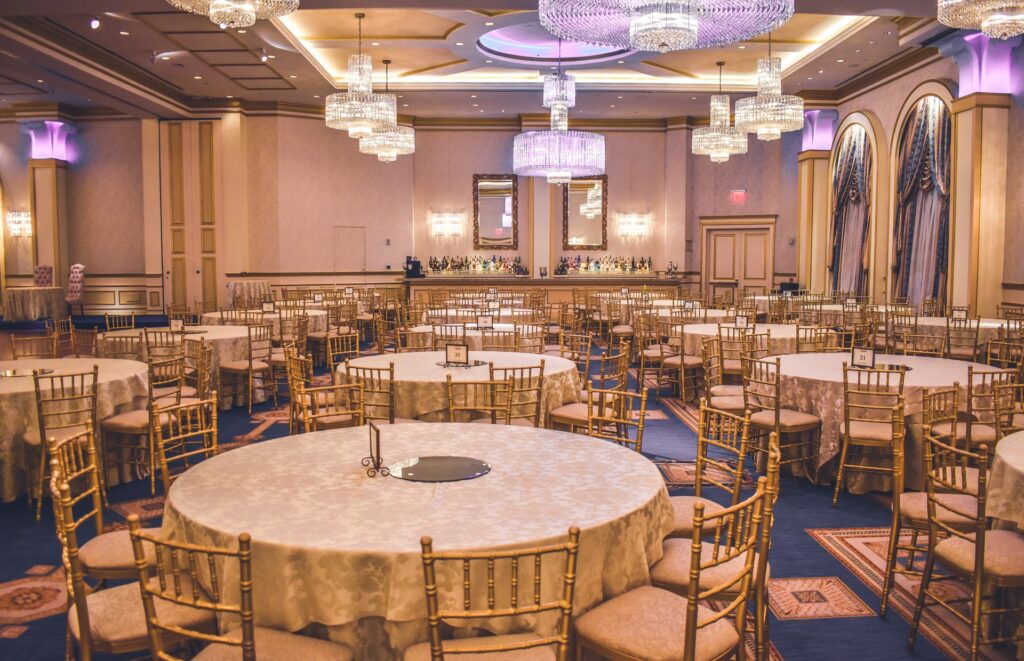
Choosing a venue is one of the most important decisions in event planning–and it’s one of the first ones you’ll make, too. Your venue will determine, or at very least confirm, your event date. Plus, it will affect your remaining budget, your decoration choices, and even attendance rates. Although choosing the right venue is a big decision, it doesn’t have to be a scary or difficult one! There are some important considerations you should make before settling on a spot—but we’ll get to those in a minute.
To find the right venue you first have to look. And there are plenty of places to look! For starters, ask friends and family if they’ve hosted or attended events in the area. Then, browse online event directories (like Eventective). Filter your results based on location, price, capacity, and a bunch of other helpful features. Sometimes, you can even email or call the venues directly from the directory (like Eventective’s directory). That way, you don’t have to spend hours visiting different websites, one by one.
Once you have a list of 4-5 potential venues, it’s time to visit them in person! While you might get a lot of information online, it’s always best to see the space for yourself. Of course, that isn’t always possible, especially if you’re planning an event from far away. If that’s the case, we recommend scheduling a virtual tour of the venue or sending a friend in your place. Once you’ve seen all the venues, as best you can, it’s time to narrow down your list using these four considerations. You may have used some of these considerations to make your list to begin with—and that’s great! But you’ll want to revisit them all to compare your top picks.
#1
Price
(Including Amenities)

Of course, you want to select an event venue that aligns with your budget—that’s why you set the budget in the first place! And because a venue is one of the first things you book, it sets the tone for the rest of the budget. But don’t just take the listed venue price at face value. Instead, be sure you know exactly what comes with your event package before booking.
Many event venues offer additional amenities to give you more bang for your buck. So instead of booking a venue, a caterer, and a florist, you can get all of those services from the venue. It saves you money and time, and gives you less points of contact while you’re planning your event. But this also means you need to thoroughly review the pricing model, because not every venue offers the same amenities.
For example, one venue might cost a little more but includes catering, while the other venue is less expensive, but it doesn’t include any additional services. It’s likely cheaper for you to book through the first venue and save on the additional outside fee for food. But you won’t know that until you read the all details! If it isn’t addressed on your tour, ask what event packages they offer before writing a venue off as too expensive.
#2
Location
(Including Lodging)

Aside from budget, location should be your top concern when hosting any event. Not only do you want to pick the right city for your event, but you also want to pick the right spot within that city. If you’re planning a personal, private event—like a wedding or birthday party—you’ll want to choose a location that’s special to you or the guest of honor.
Once you’ve chosen your city (or town), you’ll need to choose the physical location of your event venue. For large events and/or events with a lot of traveling guests, we always recommend choosing a venue near public transportation and lodging. This includes venues close to airports, but it also includes venues near bus stops or train stations, and with nearby hotels or lodges. Of course, if you’re having a small, intimate party and all of your friends are local, transportation and lodging aren’t as important. But we still recommend finding ample parking or coordinating a carpooling system for the group.
If your venue isn’t near any public transportation or lodging—make that very clear on your event website and in your invitations. Guests are less likely to attend an event that is difficult to get to, so you’ll want to set that expectation early on. If you can, consider offering a ride-sharing option or renting buses to bring people from an airport or park and ride to the venue. (Just don’t forget to schedule it for the way home, too!)
#3
Capacity
(Including Parking)

Every venue has a maximum capacity that’s determined by the state or local government—that’s not what we’re talking about here, though. Of course, you want choose a venue that can safely fit the number of guests on your list. (The venue will let you know if you can safely—and legally!—host your event on their premises.) But you also want to choose a venue that will comfortably fit the number of guests you plan to have.
Being comfortable means that your guests won’t feel crammed in the venue, and that they’ll have enough space to move around with ease between tables, at the bar, and with food. But comfort also means choosing a space that isn’t too big for your needs. Otherwise, you are left with an event that feels under-attended, which can hurt your brand and your guests’ experience.
If you’ve determined that the inside of the venue will be comfortable for your guests, don’t forget to check the outside, too. Is there enough parking for everyone? And, if not, is the venue near public transportation or in a city with taxis and ride shares? Is it accessible for those in wheelchairs or other considerations? Just because you can fit all of your guests at the venue doesn’t mean it’s the right venue for you!
#4
Ambiance
(Including Layout)

Ambiance is similar to capacity and comfort—consider the overall tone or the venue, and make sure it matches your event. For example, are you hosting a formal invite-only dinner party? The venue you choose should offer a feeling of luxury and exclusivity so your guests feel like VIPs. Think dimming lights and ornate window treatments. On the other hand, for a casual come-and-go-as-you-please event, be on the lookout for big, open windows and plenty of space for guests to walk around.
Bonus Tip: Talk to the venue staff! They’ve hosted events at the venue before, and they’ll know if there’s a layout that will work for your event.
No matter what type of event you host, you’ll have to set up some type of furniture. It may be tables and chairs for a catered dinner, a stage for a speaking engagement, or multiple food stations for guests to filter between. Regardless, make sure your venue provides the right amount of flow for guests—with your ambiance in mind. A network-oriented event can have tighter quarters (just not too tight!). After all, you want people to talk to each other! But your high-end donors should have plenty of room to go between the bar, the band, and the bathrooms.
Conclusion

As you can see, there are a lot of factors to consider before choosing the perfect venue. But your venue is a critical component of your event! If your guests had trouble getting to the venue, their opinion of the event is already negative—before they arrive. And even if it’s easy to get to, if they walk in a see a drab, uninspired space, they are going to feel the same way during the event. All the work of choosing an event venue is worth it!
What questions do you often ask event venues? What amenities or features won’t you compromise on?

